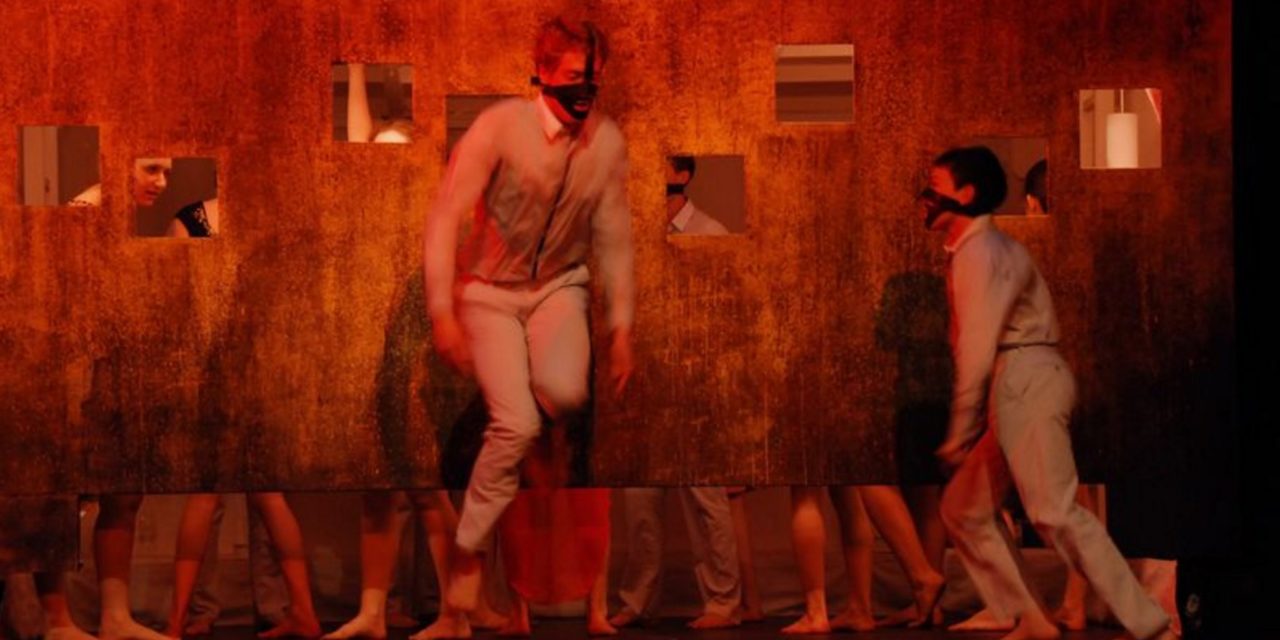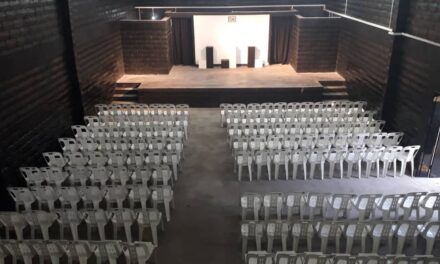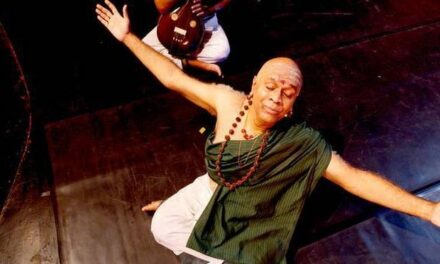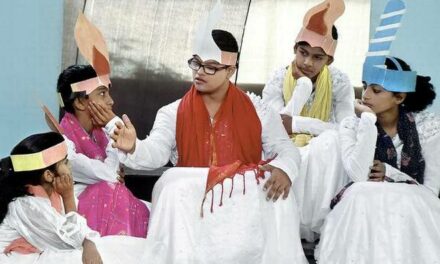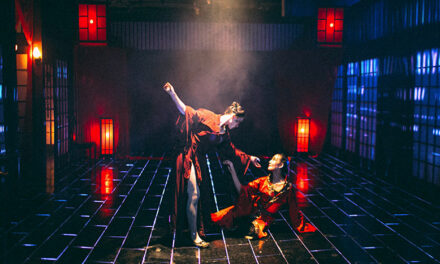Since 1996, the German Children’s Theatre Prize and the German Young People’s Theatre Prize are awarded every two years. They can be read as a barometer of dramatic aesthetics for the young audience.
The preamble of the call for proposals for the prizes in 1995 read: “The German Children’s Theatre Prize and the German Young People’s Theatre Prize are intended to promote children’s and young people’s dramatic literature. The idea is that children and young people should be stimulated to encounter the performing arts.” Since then, the Children and Youth Theatre Centre (KJTZ) in Frankfurt am Main has hosted these single state prizes for children’s and young people’s theatre on behalf of the Federal Ministry of Youth. The first prizes were awarded in December 1996: Rudolf Herfurtner, for his children’s play Waldkinder (Children of the Forest), and Oliver Bukowski, for his young people’s play Ob so oder so (This Way or That) each received 15,000 Deutschmarks.
The prizes still see themselves today not only as promotional awards for authors and their work, but also as a catalyst for a children’s and young people’s theatre dedicated to “aesthetic education” (1995) and “cultural education” (2016). The performances of the award-winning plays offer the young audience an opportunity to enter into dialogue with them.
The awards are given to plays by living authors that are written in German or available in German translation. They must either have been published by a publisher two years before the call for proposals or have been premiered at a theater. Theaters and publishers may submit proposals.
THE PRIZES AS BAROMETER
The jury, which the Ministry of Youth appoints anew every two years, is composed of theatre-makers, scholars, and a representative from the Theatre/Dance section of the Goethe-Institut (since 1996, Thomas Stumpp). The chairman of the jury is the director of the KJTZ. The Goethe-Institut showed interest in this initiative from the start: the award-winning plays are suitable for translation and can be included in the curriculum of “German as a Foreign Language.” This latter expectation, however, has proven somewhat too optimistic, for the plays are often too demanding for foreign language teaching.
The aesthetic and dramaturgical development of the theatre in the last twenty years has not been without consequences for the prizes, its call for proposals, and the results. The prizes can be read as a barometer of dramatic aesthetics for the young audience. Thus, in 1996 the jury summarized their reading impressions as follows: “In children’s theatre, plays based on stories invented by authors held the balance with texts whose basis were fairy tales, legends, or children’s books.” In 2014 the conclusion was quite different. The jury chairman Prof. Dr. Gerd Taube wrote: “A basic finding regarding the literary forms shows that, amongst 102 proposals, plays in a closed, dramatic form were hardly still submitted and that instead, episodic, epic-narrative, and monological plays dominated the field.” And as to the proposals in 2016, the chairman of the ASSITEJ, Prof. Dr. Wolfgang Schneider, concluded: “Much suggests that theatre for the young audience seems to be overdue for a paradigm change, ranging from the kind of plays offered to more opportunities for participation…The dramatists are thereby our artistic partners.”
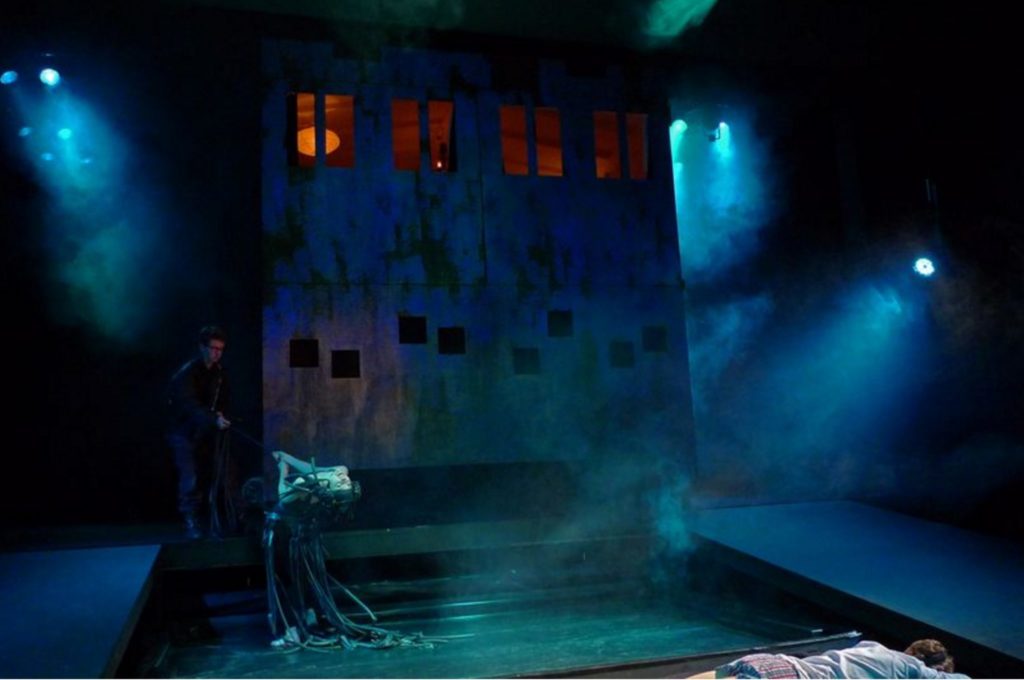
Nachtschwärme (Nighthawks) by Thomas Oberender. AG Theater Projekt 012. Press photo. Source: http://www.agtheater.ch/
The circle of prize-winners is diverse. In 2000, the winner was Nachtschwärmer (Nighthawks) by Thomas Oberender, his debut play in the genre of children’s theatre. Quite the opposite with Martin Baltscheit, who received the 2010 Young People’s Theatre Prize for Die besseren Wälder (The Better Forests) and the 2016 Children’s Theatre Prize for Krähe und Bär (Crow and Bear). It is striking that plays in translation have repeatedly received the prizes. The German Children’s Theatre Prize and the German Young People’s Theatre Prize went, for example, to the Dutch writer Ad de Bonts in 1998 for his Daughter of the Crook King, to the Swedish writer Jonna Nordenskiöld in 2000 for her Jonna Ponna, and to the English writer Mike Kenny in 2012 for his Electric Darkness. In this way, the prizes reflect the international repertoire of children’s and young people’s theatre in Germany. Prize-winners in 2016 are Martin Baltscheit for Krähe und Bär (Crow and Bear) and Jörg Menke-Peitzmeyer for his young people’s play The Working Dead.
A REASON TO CELEBRATE
In addition to the two “main” prizes, the call for proposals includes further boosts: praiseworthy mentions of young talents, awards for theaters that perform the winning plays, invitations to write new plays and to test these on the stage (as, for example, at the festival Boxenstopp Leipzig) and awards for translators. Thanks to publication of the selection lists and the nomination each time of three authors – practices introduced in 2002 – the work of the jury has been made more transparent. In 2016 a “Special Prize for Students” was awarded for the first time. Eligible are only students who are studying dramatic writing at a German-language university. This year’s winners are Franziska Niehaus, Alina Rathmann, and Rinus Silzle.
The sponsor and the KJTZ attach great importance to an appropriate and festive awards ceremony. “How pleasant that we have something to celebrate,” said Wolfgang Schneider in his speech at this year’s awards. In a festive setting, at Frankfurt’s most prestigious premises, the Emperor’s Hall in the Römer, not only are the prize-winners honored every two years, but also children’s and young people’s theatre as a whole. Since 1996 the awards ceremony has been embedded in the renowned Frankfurt Authors Forum for Children’s and Young People’s Theatre. This gives the organizer the opportunity not only to present the nominees, prize-winners, and their texts at length but also to discuss the “state of dramatic children’s and young people’s literature in general.”
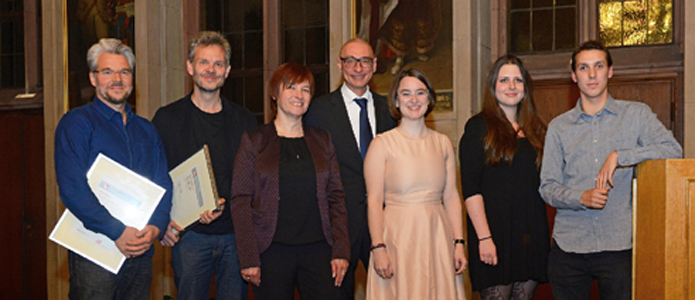
The prize-winners 2016: Martin Baltscheit, Jörg Menke-Peitzmeyer, Caren Marks, Prof. Dr. Gerd Taube, Franziska Isabella Niehaus, Alina Rathmann, Rinus Silzle (f.l.t.r.) | Photo credit Karin Berneburg
This article was originally published on the Goethe-Institut. Reposted with permission. Read the original article.
Copyright: Goethe-Institut e. V., Internet-Redaktion
December 2016
This post was written by the author in their personal capacity.The opinions expressed in this article are the author’s own and do not reflect the view of The Theatre Times, their staff or collaborators.
This post was written by Henning Fangauf.
The views expressed here belong to the author and do not necessarily reflect our views and opinions.

